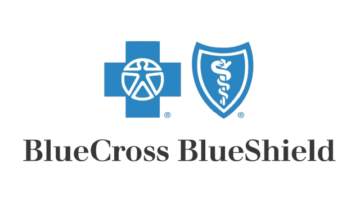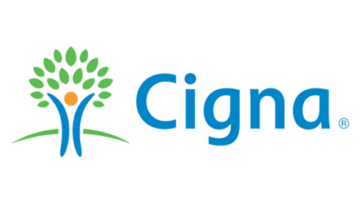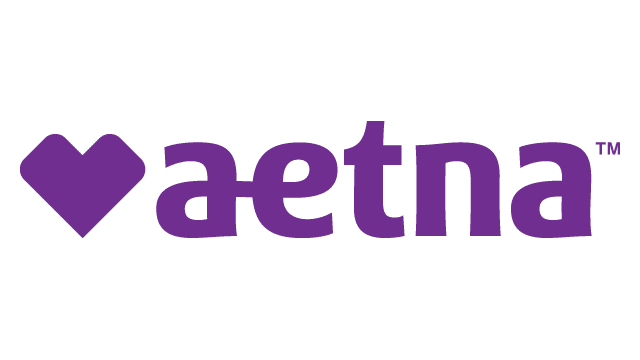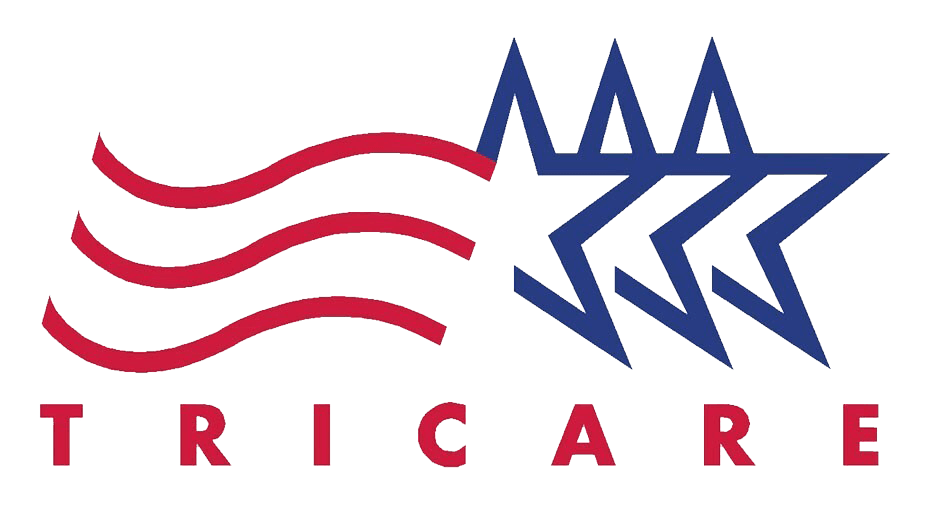Family Matters Uniting for Drug Treatment Programs in Austin
In the heart of Austin, where innovation and community intertwine, a silent battle rages on—drug addiction. This pervasive issue affects not just the individuals grappling with it but also sends ripples through families and communities, leaving emotional and financial strains in its wake. The impact of addiction can create a cycle of pain, affecting relationships, disrupting daily life, and leading to a sense of hopelessness for many. However, there’s hope on the horizon, and it comes in the form of family involvement in drug treatment programs in Austin. Research has shown that when family members actively participate in the recovery process, the chances of long-term success significantly increase. Families can provide essential support, encouragement, and accountability that are crucial for healing. In this blog post, we will explore the profound impact of family participation on recovery, offering insight into the various ways families can engage in treatment. We’ll provide practical guidance for those in Austin navigating this challenging path, ensuring they understand the resources available to them and the importance of fostering a supportive environment for their loved ones.
Understanding the Role of Family in Drug Addiction: Family as the First Responders
Families are often the first to notice the subtle shifts in behavior that can signal substance abuse. They may observe changes in mood, routine, or social interactions that raise concern. Their close proximity and intimate knowledge of an individual’s typical behavior allow them to offer immediate support and encouragement when it’s needed most. This support can be pivotal, as it serves as a crucial lifeline in the early stages of addiction awareness. By fostering open communication and expressing concern without judgment, families can help their loved ones recognize the challenges they are facing and encourage them to seek help before the situation escalates.
Enabling Behaviors and Their Consequences
While families often mean well in their support, their actions can sometimes inadvertently enable addiction. Enabling behaviors include a range of actions that indirectly support substance abuse, such as shielding the individual from the consequences of their actions, covering up their behavior, or providing financial assistance that allows them to continue their addiction. This can create an environment where the addicted person feels less accountable for their choices and is not confronted with the reality of their situation. Recognizing such patterns is critical to changing the trajectory of addiction, as it allows families to shift their approach and encourage the individual to seek help and take responsibility for their recovery journey. Understanding the impact of enabling behaviors is an important step for families striving to foster a healthier dynamic and support true healing.
The Complex Web of Family Dynamics
The intricate relationships within families can significantly influence the addiction recovery process, both hindering and aiding it in various ways. Family members often have deep-seated patterns of interaction that can either create a nurturing atmosphere conducive to healing or a toxic environment that fosters continued substance abuse. Understanding these dynamics—such as communication styles, emotional responses, and behavioral patterns—is crucial for fostering a supportive environment. When families actively engage in the recovery journey, they can provide encouragement, accountability, and love. These are vital for successful recovery. Conversely, unresolved conflicts and unhealthy dynamics can perpetuate addiction. This makes it essential for families to address their issues. They must work together towards a common goal of recovery. By building stronger, healthier relationships, families can play a pivotal role. They support their loved one’s journey towards healing and long-term sobriety.
The Impact of Family Involvement in Drug Treatment Programs in Austin: Emotional Support as a Pillar of Recovery
Families provide unwavering emotional support, which is invaluable during the recovery process. This support often manifests in various forms, such as active listening, encouragement, and being present during challenging moments. Their love, encouragement, and understanding can motivate individuals to persevere through the toughest phases of treatment. Additionally, having family members involved can create a nurturing environment that fosters healing and resilience, allowing individuals to feel more connected and less isolated as they navigate their journey toward recovery. The presence of supportive family members can make a significant difference in maintaining a positive mindset and staying committed to the treatment plan.
Accountability Partners in the Journey
Families play a vital role in holding individuals accountable for their actions. Their involvement can significantly influence the recovery process, as they provide support, encouragement, and a sense of community. By participating in treatment programs, families not only gain insights into the challenges their loved ones face but also learn effective ways to communicate and foster positive behaviors. This collaborative effort helps ensure that their loved ones take responsibility for their recovery journey, making long-term sobriety more attainable. When families are engaged, they create a nurturing environment that reinforces commitment and resilience, ultimately leading to more successful outcomes in the recovery process.
Educating Families for Better Understanding
Many family members may not fully grasp the complexities of addiction, often leading to feelings of confusion and helplessness. To address this gap in understanding, drug treatment programs in Austin offer comprehensive educational workshops. They also offer therapy sessions designed specifically for families. These initiatives aim to enhance their understanding of the addiction process. They also explain the challenges faced by their loved ones. The various recovery pathways available are also covered. By equipping families with this knowledge, they can learn how to provide informed support. They can also provide compassionate support. This fosters a healthier and more supportive environment for their loved ones. They support them on the road to recovery.
Promoting Communication and Healing Family Dynamics: Therapeutic Conversations for Healing
Family therapy sessions create a safe and supportive environment for open communication, fostering a sense of trust among participants. These sessions facilitate healing by allowing family members to express their feelings and concerns without fear of judgment. Through guided discussions, they can work through conflicts, understand each other’s perspectives, and develop healthier ways of interacting. By addressing underlying issues and improving communication skills, family therapy ultimately strengthens their bonds, helping families to navigate challenges together and build a more resilient family unit.
Building Empathy and Understanding
Therapy fosters empathy, allowing families to dive deeper into the struggles their loved ones face. By engaging in open conversations and guided reflections, family members can gain valuable insights into the emotional and psychological challenges that may have been previously overlooked. This newfound understanding not only helps to bridge gaps in communication but also paves the way for more supportive and nurturing family relationships. As empathy grows, families can create a safe space where members feel heard, validated, and empowered to share their experiences, ultimately strengthening their bonds and enhancing overall well-being.
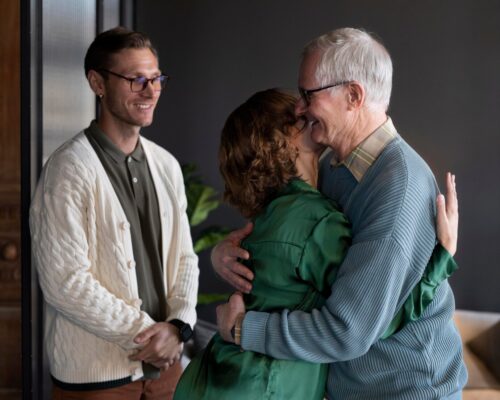
Transforming Relationships Through Dialogue
By improving communication, families can shift from patterns of blame and resentment to a more constructive approach characterized by collaboration and support. This transformation fosters an environment where open dialogue is encouraged, allowing each member to express their feelings and concerns without fear of judgment. As a result, families create a healthier atmosphere that not only aids in individual recovery but also strengthens their relationships, making it easier to navigate challenges together. Ultimately, effective communication lays the foundation for a supportive network that promotes healing and resilience.
Creating a Long-Term Support System: Sustaining Support Beyond Treatment
Recovery is an ongoing process that extends far beyond the walls of treatment centers. It involves continuous effort and commitment to healing, and it’s essential for individuals to have a strong support system in place. Families play a crucial role in this journey, as they can provide unwavering support, encouragement, and accountability. As their loved ones transition back into everyday life, family members can help by creating a safe and nurturing environment, encouraging positive habits, and being there to listen and offer guidance. This collaborative approach not only fosters resilience but also strengthens the bonds between family members, making the recovery journey smoother and more successful.
Building a Network of Support
Involving families in treatment programs fosters a strong sense of community, connecting them with others who share similar experiences and challenges. This collaboration not only helps to reduce feelings of isolation but also creates a safe space for open communication and shared understanding. When families participate actively in the recovery journey, they gain valuable insights into the process, which can enhance their ability to support their loved ones. This network of support can be a powerful resource, offering emotional encouragement, practical advice, and a sense of belonging for both individuals in recovery and their families. Ultimately, by engaging families in treatment, we can create a more comprehensive support system that benefits everyone involved and encourages lasting healing and growth.
Fostering Resilience and Adaptability
Through active involvement in treatment programs, families learn to adapt to the challenges of recovery. They also gain valuable insights and coping strategies. This enhances their understanding of the recovery process. This engagement fosters a sense of community and support among family members. It allows them to build resilience that helps them navigate the inevitable ups and downs. By participating in workshops and support groups, families develop stronger communication skills. They also develop a deeper emotional connection. This equips them to face obstacles together with greater confidence and unity.
How to Involve Families in Drug Treatment Programs in Austin: The Role of Family Therapy
Family therapy sessions are a crucial component of most drug treatment programs in Austin. They provide structured opportunities for families to come together and address various issues. These issues may have arisen due to substance use and family dynamics. These sessions create a safe space where family members can openly express their feelings. They can share their experiences and gain insight into one another’s perspectives. Through guided discussions and therapeutic activities, families can work towards healing relationships. They can improve communication and foster a supportive environment that promotes recovery. This collaborative approach not only helps individuals in treatment but also strengthens the overall family unit. This makes it more resilient in the face of challenges.
Education as a Tool for Empowerment
Educational workshops provide families with essential knowledge and insights. These empower them to grasp the multifaceted nature of addiction more comprehensively. These sessions delve deeply into the complexities of addiction. They examine not only its psychological and emotional dimensions but also its social implications. The effects on family dynamics are also explored. Participants engage in discussions that illuminate how addiction impacts relationships. They learn how addiction affects communication patterns and overall family health. By equipping families with effective strategies and resources, these workshops teach participants how to offer support. They learn to offer meaningful support to their loved ones. This fosters a healthier and more informed environment for recovery.
This includes practical tools for communication and coping mechanisms for dealing with stress. Guidance on navigating the often challenging path of recovery is also provided. Ultimately, these workshops aim to create a supportive community. Families can share experiences, learn from one another, and cultivate resilience. They face the challenges of addiction together.
Connecting Through Support Groups
Family support groups provide a vital sense of belonging and understanding at drug treatment programs in Austin. These groups often meet regularly, creating a consistent environment for connection and support. In these gatherings, members have the opportunity to connect with others facing similar situations, fostering a community of empathy and solidarity. Participants can share their stories, discuss specific issues they encounter, and offer encouragement to one another, which can be incredibly healing. Moreover, these groups often invite guest speakers, such as therapists or social workers, who can provide expert insights and coping strategies tailored to the unique dynamics of family life. This additional layer of support can help participants navigate their challenges more effectively. By learning from one another’s experiences, gaining new perspectives, and feeling less isolated in their struggles, families can ultimately enrich their dynamics and enhance their overall well-being. The friendships formed in these groups often extend beyond meetings, creating a network of support that families can rely on in times of need.
Conclusion
Family involvement is a linchpin of successful drug treatment programs in Austin. By offering emotional support, fostering accountability, promoting education, and enhancing communication, families can significantly impact their loved ones’ recovery journeys. Together, they form a support system that extends beyond treatment, paving the way for long-term sobriety and healthier family dynamics. If you or a loved one is seeking help for drug addiction, consider reaching out to us for assistance by calling 1 (512) 601-5407 or clicking Omega Recovery. With the right support and commitment from family members, recovery is not just possible—it’s attainable. Together, we can break the stigma surrounding addiction and foster holistic recovery for individuals and their families, ensuring a brighter future for all. Recovery is within reach, and with the right support, anyone can overcome the challenges of addiction and lead a fulfilling life free from substance abuse. Let’s work together to create a supportive, understanding, and compassionate environment for those on the path to recovery.
